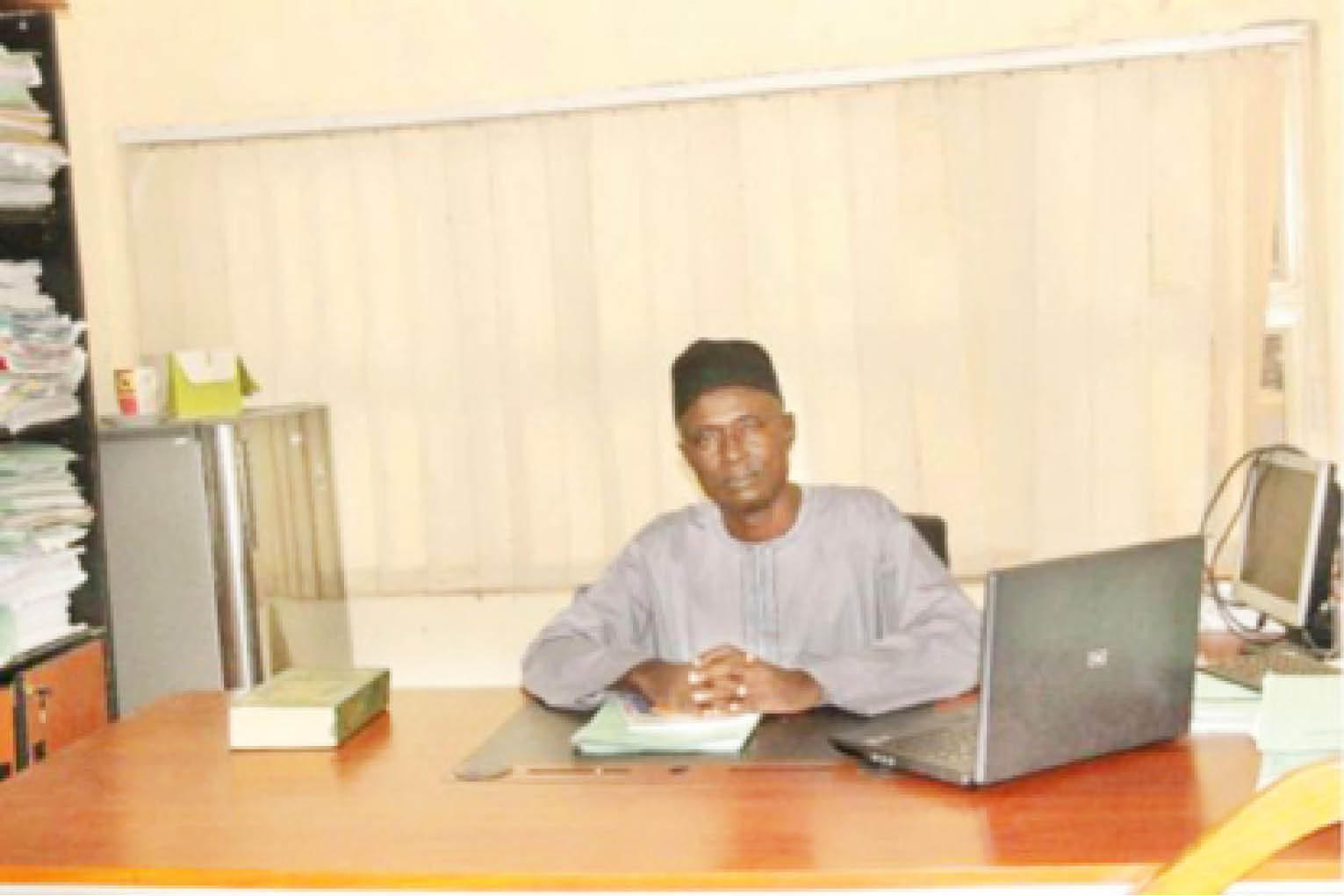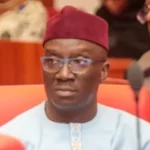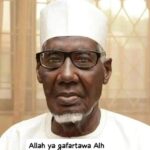Muhammad Umaru Ndagi is a Professor of Arabic and Deputy Dean, School of Postgraduate Studies, University of Abuja, Abuja. Speaking on the World Arabic Language Day marked recently, Ndagi who was a former National President of the Academic Society for Arabic Language and Literature in Nigeria (ASALLIN), told Daily Trust how apart from modern technology, Arab elite also contribute to retardation of the language. Excerpts:
You once called for a change in the December 18 date set aside by the United Nations (UN) as Arabic Language Day, what has changed since then?
It is not within my authority to effect a change in the date set aside for celebrating Arabic Language Day because I was not the one that instituted the day. A change in date can only come from its founders. The World Arabic Language Day (WALD) was established in 2010 by the United Nations Education, Scientific and Cultural Organization (UNESCO).
I was only expressing my feeling last year on the occasion of the 2018 WALD that if I had a choice, I would prefer the day to be observed annually on the date on which the Mongols invaded Baghdad, destroyed libraries and burnt valuable books authored or translated by medieval Arab philosophers and scholars. This is the tradition in the case of many International Days.
For instance, November 1 was chosen as the Remembrance Day for the liberation of Nazi concentration camps to mourn the killing of millions of Jews. In Nigeria too, January 15 every year is observed as Armed Forces Remembrance Day to reminisce some First Republic leaders who were killed in the country’s first military coup of January 15, 1966.
My thinking is that observing Arabic Day on any day between January 29 and February 10, which is the period in 1258CE during which the Mongols captured and sacked Baghdad (then capital of Abbasid Caliphate) would provide opportunity to remember the worst devastation that happened to Arabic in its role as the language of science in the days of Bait ul-Hikmah.
With the number of Arabic speakers globally, how would you describe the growth of Arabic language in the world?
With over 420 million native speakers and over 1.5 billion users worldwide, I do not have the confidence to say Arabic language is truly growing. It was not for nothing that the theme of the second international conference on Arabic language which I attended in Dubai in May 2013 was ‘Arabic Language Under Threat’.
The threat is not in the syntax, morphology, rhetoric, semantic or literature of the language but in its natural role in our homes, on the streets, marketplaces, offices, schools and universities, in research, in the media, on the internet and in the modern world of vast information and communication technology.
Colloquial Arabic is displacing classical Arabic in all forms of interaction (in offices, schools and electronic media) among the Arabs who are the traditional custodians of the language. Bilingual and multi-lingual Arab elite prefer to speak in English or French when they meet non-native speakers of Arabic.
The most critical retrogression is the collective failure of the Arab world to catch up with the linguistic challenges occasioned by modern scientific and technological inventions. Arabic terms have not been coined for most of the English words that were prompted by GSM technology.
Words such as Facebook, WhatsApp, Instagram, Skype, and Xender, are yet to have their Arabic equivalents. In some cases, Arabic is rather losing some of its indigenous words to English terminologies. An Arab elite would, for example, prefer to say ‘passport’ than to call it by its Arabic name ‘Jawazu safar’. All these shortcomings do not add up to the growth of the language.
It seems the day is not celebrated well in Nigeria, why so and how can that be changed?
I agree with you. How do you expect any form of elaborate celebration of Arabic in Nigeria when majority of those who speak or use the language are not even aware of the day? For now, we can only continue to use the conventional media (radio, television and newspapers) to educate the public about the WALD.
What would you say on concerns that English is gaining more than Arabic in the growing globalized world even among the Arabs?
You see,a typical Arab elite today prefers to speak other than his/her native Arabic even with members of his immediate family. At a regional workshop organized by the Islamic, Educational, Scientific and Cultural Organisation (ISESCO) in May 2017 in the Republic of Chad where I represented Nigeria, I met a middle-aged native speaker of Arabic who said all his four children could neither speak nor understand Arabic.
That, he did not speak Arabic with them and the only language they could speak was English or French. He told us he had lived most part of his life in Europe. With this kind of situation, why wouldn’t English have more speakers than Arabic?
What then can the Arabs do to strengthen Arabic growth in the world?
I am not aware of any Arabic speaking diplomatic mission in Nigeria that is organizing any event to mark the 2019 WALD. This should not be the case. Arab leaders under the aegis of the Arab League or organisations such as ISESCO, need to depart from their present path of indifference and laziness regarding Arabic language to a modern track where Arabic would once again be supported and promoted to play its role as language of science and technology in the same way it did under Caliph al-Mamun (son of Caliph Harun Ar-Rashid) of the Abbasid dynasty.
This would essentially require some kind of intellectual renaissance under a deliberate regional Arabization policy in which pure sciences, engineering and medicine would all be taught and studied in Arabic language; and not through the English medium as is the case at present.
What can Nigerian Muslims do on their part for the growth of Arabic as the official language of their religion?
To correct a perception in your question, Arabic is not a language spoken or used by Muslims alone even in Nigeria. Bishop Idowu Feron who is the Secretary General of the Anglican Communion Worldwide speaks fluent Arabic with a PhD degree in comparative religious studies from Jordan.
I guess you have heard of Professor Isaac Ogunbiyi who retired from the Lagos State University as a Professor of Arabic Literature after contributing so much to that area of knowledge. The first set of Arabic graduates in 1967 from the University of Ibadan (UI) were only three and all of them were non-Muslims. The second set of Arabic graduates from UI in 1968 to which Professor Ogunbiyi and Kole Omotosho belong was a class of five and Miss Hafsat Akanbi was the only Muslim among them. The present Alake of Abeokuta, His Highness Oba Gbadebo, belongs to the third set of Arabic graduates from UI in 1969 which was a class of seven.
To answer your question now, the Nigeria Arabic Language Village (NALV) at Ngala in Borno State, which was devastated by insurgents should be brought back to life to serve the language immersion purposes for which it was established by the federal government. Like the French Village, the NALV is supposed to provide Arabic learning opportunities for interested persons at beginners and advanced levels of study.
It is never too late to learn Arabic even as an adult. I encourage us to study it as a school subject at the secondary or tertiary levels of education. There is nothing wrong with making Arabic alongside other international languages part of the General Studies (GST) courses in Nigerian universities. For the purpose of marking today’s WALD, let us spend some time today to speak the little Arabic we know with our family members at home, and with friends and colleagues at workplaces.

 Join Daily Trust WhatsApp Community For Quick Access To News and Happenings Around You.
Join Daily Trust WhatsApp Community For Quick Access To News and Happenings Around You.


